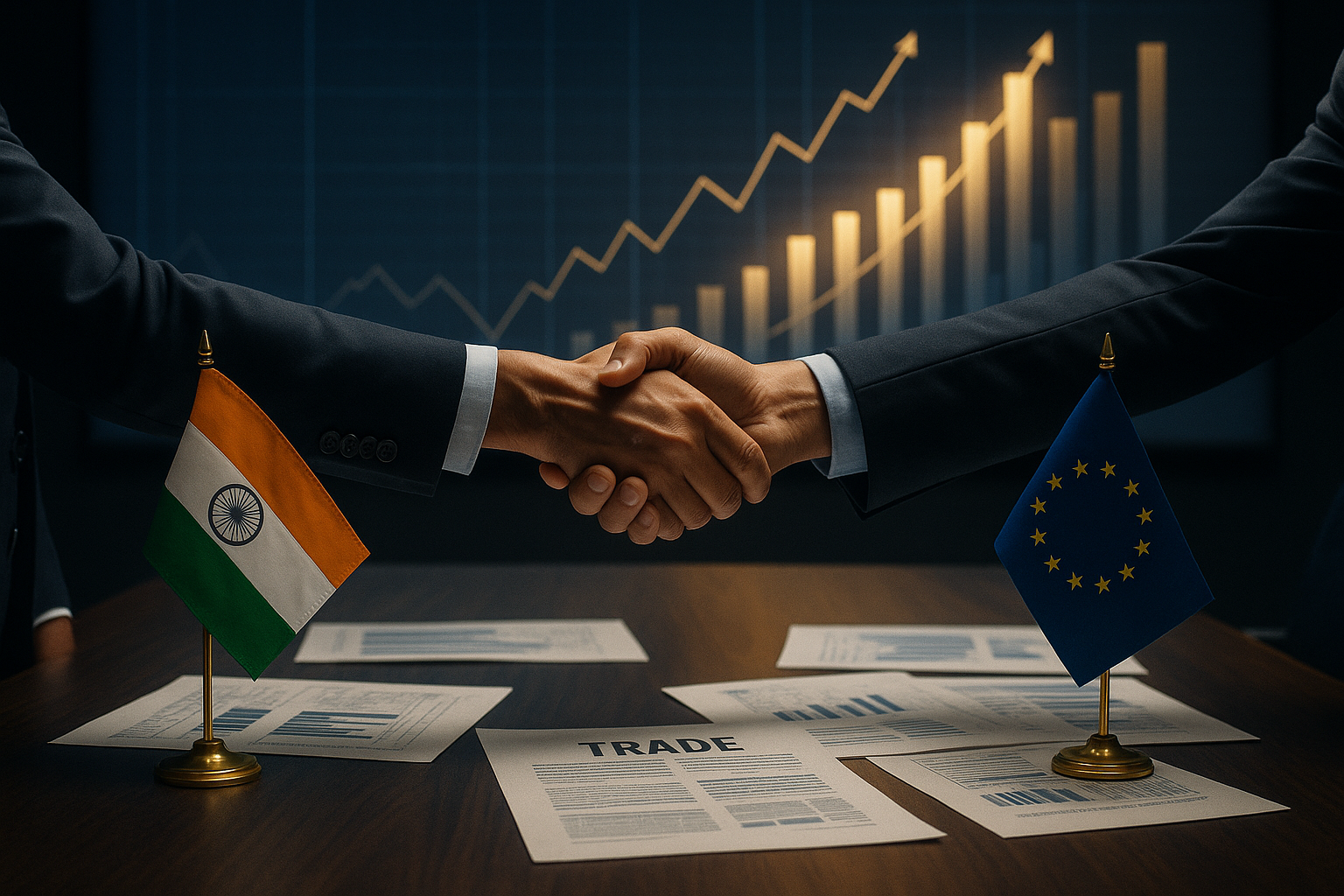Commerce and Industry Minister Piyush Goyal has reaffirmed India’s commitment to pursuing a “win-win” Free Trade Agreement (FTA) with the European Union, highlighting the potential to strengthen bilateral economic ties, enhance market access, and support sustainable growth. Both sides are working to align interests across goods, services, and investment frameworks, with negotiations focusing on balanced concessions and shared growth objectives.
The statement comes amid heightened global trade uncertainty, reinforcing India’s intent to position itself as a trusted, competitive trade partner for the EU.
Core Development
During recent deliberations, Goyal emphasized that:
The proposed FTA aims to deliver benefits to both India and the EU, avoiding one-sided gains.
Negotiations are addressing critical sectors including pharmaceuticals, textiles, automobiles, and IT services.
A focus on sustainability, digital trade, and green technologies is shaping the framework.
The FTA is being framed as a long-term partnership to boost trade volumes, create jobs, and foster innovation.
Key Priorities in Negotiations
Market Access: Easier entry for Indian goods into EU markets and vice versa.
Services Trade: Opportunities for Indian IT and professional services firms.
Investment Protection: Safeguards for investors under clear and fair rules.
Sustainability: Joint efforts toward climate-friendly and green trade practices.
Stakeholder Impact
Indian Exporters: Gain access to high-value EU markets across manufacturing and services.
EU Businesses: Opportunity to leverage India’s large consumer base and cost-competitive ecosystem.
Government: Strengthens India’s global trade positioning while ensuring domestic interests are safeguarded.
Industry & Policy Reactions
Industry leaders welcomed the statement, stressing that the FTA could unlock billions in trade potential while boosting investor confidence. However, analysts caution that sensitive sectors like agriculture and dairy may require careful negotiation to balance domestic protection with global integration.
Challenges Ahead
Tariff Barriers: Negotiating reductions without hurting vulnerable domestic industries.
Regulatory Hurdles: Alignment on standards, data privacy, and digital frameworks.
Geopolitical Risks: Global tariff wars and shifting alliances may influence timelines.
Strategic Outlook
A successful India-EU FTA would represent one of the most significant milestones in India’s trade diplomacy, diversifying exports and deepening economic ties with a critical partner. It underscores India’s ambition to balance self-reliance with global integration, a strategy central to sustaining long-term growth.
Why This Matters
The India-EU FTA has the potential to redefine global trade dynamics for India, opening doors to advanced markets, new technologies, and sustainable growth opportunities — while ensuring India’s competitiveness in a rapidly evolving global economy.












